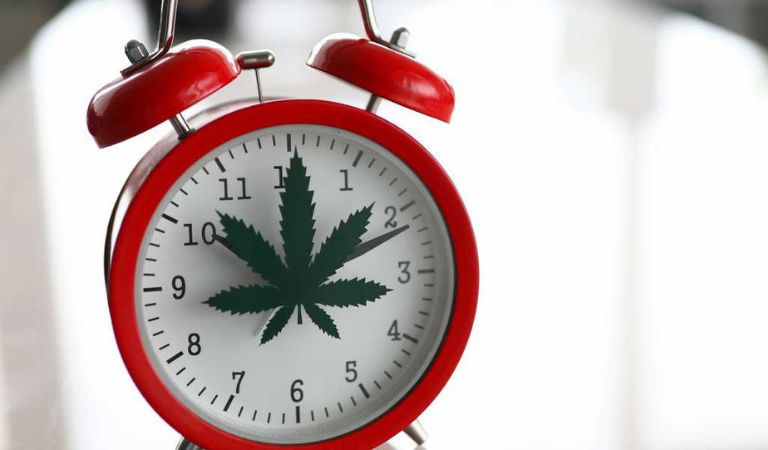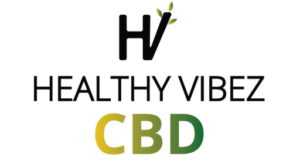How Long Does It Take For CBD To Work? A Comprehensive Guide On CBD Onset Times And Duration

Welcome to our comprehensive guide on one of the most frequently asked questions in the world of cannabidiol (CBD) – “How long does it take for CBD to work?” Whether you’re a CBD novice or a seasoned user, understanding the onset times and duration of CBD can be a bit of a puzzle. But do not worry, in this article we will discuss the time it takes for CBD to show its action and multiple factors effecting the onset of action.
What Is CBD?
Cannabidiol, also known as CBD, is a chemical that’s naturally found in the Cannabis Sativa species. Although there are many cannabinoids in the cannabis plant, this one distinguishes out due to its potential medicinal properties. Since CBD is not addictive like its close cousin THC (tetrahydrocannabinol), it won’t give you a feeling of being “high.”
A Clear Answer: How Long Does It Take For CBD To Work?
Before discussing various factors and methods of consumption that can influence CBD onset times, it’s essential to provide a clear, concise answer to our main question. So how long till CBD starts to work?
Depending on the mode of ingestion, you may often anticipate feeling the effects of CBD between 15 minutes to 2 hours. Here’s a quick breakdown.
- Inhalation (Vaping/Smoking): Effects can be felt within 2-10 minutes.
- Sublingual (Tinctures/Drops): Effects are obvious within 15-45 minutes.
- Oral (Capsules/Edibles): Effects can be observed within 30 minutes to 2 hours.
- Topical (Creams/Balms): Effects are seen within 25-45 minutes.
Keep in mind that these are only rough estimations and may change depending on the elements covered in the coming sections.
How Does CBD Work In The Body?
It’s essential to comprehend how CBD works in the human body to truly understand the factors affecting the onset of action of CBD. The endocannabinoid system (ECS), a sophisticated cell-signaling mechanism in our bodies, is influenced by CBD. The body’s internal equilibrium, or homeostasis, is crucially maintained by the ECS.
Unlike THC, CBD doesn’t directly connect to the ECS receptors (CB1 and CB2). Instead, it modulates several non-cannabinoid receptors and ion channels and inhibits anandamide uptake, a neurotransmitter known as the ‘bliss molecule.’ By doing so, CBD can influence pain, inflammation, mood, sleep, and many other bodily functions.
Factors Influencing CBD Onset Times And Duration
The onset time and duration of CBD effects can vary significantly depending on several factors.
- Method of Consumption: The way you consume CBD plays a crucial role in how quickly you’ll feel the effects. Ingesting CBD in the form of capsules or edibles means it has to pass through your digestive system before entering the bloodstream, which can take anywhere from 30 minutes to 2 hours. On the other hand, sublingual administration (under the tongue) or vaping allows CBD to enter the bloodstream directly, often leading to faster effects.
- Dosage: How much CBD you consume can also affect how quickly you experience the benefits. It’s usually advised to start with a modest dose and gradually increase it because higher doses could have a more noticeable and quicker impact.
- Body Composition: Every individual is unique, and so is their body’s response to CBD. Factors like body weight, metabolism, and overall health can influence how quickly CBD works and how long its effects last.
- Quality of CBD: Your CBD product’s purity and quality might have a big impact on how effective it is. Always opt for high-quality, third-party-tested CBD products to ensure you’re getting the best results.
CBD Onset Times By Method Of Consumption
Now that we understand the factors influencing CBD onset times let’s delve into how different methods of consumption compare.
- Inhalation (Vaping/Smoking): This method provides the quickest onset of effects, usually within minutes. Via the lungs, CBD gets directly absorbed into the circulation, bringing about instant relief. However, the effects may wear off quicker, typically within 2-3 hours.
- Sublingual (Tinctures/Drops): When CBD oil is held under the tongue for 60-90 seconds before swallowing, it’s absorbed by the mucous membranes and reaches the bloodstream quickly. The effects might persist for many hours and are often noticed within 15 to 30 minutes.
- Oral (Capsules/Edibles): Because the CBD must go through the digestive system, this route takes the longest to work. The onset time might be anything between 30 and 2 hours. But sometimes the effects might linger up to six hours or more.
- Topical (Creams/Balms): CBD administered topically to the skin interacts with cannabinoid receptors close to the application site rather than entering the bloodstream. The onset time varies, and it’s best for localized relief.
Maximizing The Benefits Of CBD
To get the quickest and best benefits of CBD, follow the following tips.
- Start Little and Grow Slow: Start with a small dose and slowly increase it till you get the suitable amount for you, particularly if you’re beginner with cbd.
- The key is consistency: CBD may function best if utilized regularly over time. Think about include it in your everyday regimen.
- Select high-quality products: Not every CBD product is made equally. Look for goods that have undergone independent testing and are open about their components.
Understanding CBD Bioavailability
Another crucial aspect to consider when discussing CBD onset times and duration is bioavailability. The percentage of CBD that actually reaches your bloodstream after absorption is referred to as bioavailability. Different methods of consumption have different rates of bioavailability:
- Inhalation (Vaping/Smoking): This method offers the highest bioavailability, estimated between 34% to 56%. This rapid rate is brought about by the immediate bloodstream entry of CBD via the lungs, avoiding the digestive system.
- Sublingual (Tinctures/Drops): The bioavailability of sublingual consumption is estimated to be between 13% to 19%, although some studies suggest it could be as high as 35%. CBD oil may immediately enter the circulation by being held under the tongue, where it is absorbed by the mucosal membranes.
- Oral (Capsules/Edibles): Oral consumption has the lowest bioavailability, estimated between 4% to 20%. This is due to the first-pass metabolism, where CBD is partially broken down in the stomach and liver before reaching the bloodstream.
- Topical (Creams/Balms): It’s challenging to measure the bioavailability of topicals since they don’t enter the bloodstream. However, they’re effective for targeting localized areas.
CBD And Drug Interactions
Although CBD is usually regarded as harmless, it’s crucial to remember that it can interact with some drugs and might change how they work. This is so because many common drugs, including CBD, are also processed by the same enzymes (CYP450) that metabolize CBD. Before beginning CBD therapy, it’s critical to speak with a healthcare provider if you’re on any medications.
Conclusion
Understanding how long CBD takes to function and how long its benefits endure might help you more successfully navigate the information-rich world of CBD. Keep in mind that each individual’s experience with CBD is different, and what is most effective for one person may not be the same for another. Finding what works best for you is key.
